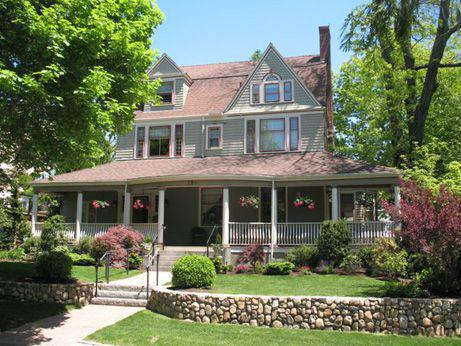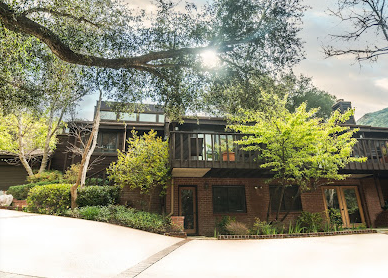Monte Nido - Laurel Hill
Overview
Monte Nido - Laurel Hill is a specialized residential center for eating disorders, located in Medford, Massachusetts. The center provides a comprehensive treatment program specifically designed for adult women, embracing a whole-health approach that includes medical care, nutritional counseling, and psychotherapy.
Monte Nido Laurel Hill offers residential treatment tailored to address all eating disorder diagnoses, including anorexia, bulimia, binge eating disorder, ARFID, OSFED, and co-occurring disorders. The treatment is facilitated by a multi-disciplinary team that employs evidence-based approaches such as Dialectical Behavioral Therapy (DBT), Cognitive Behavioral Therapy (CBT), along with both group and individual therapy. With 24/7 clinical and staff support, the center ensures a safe and supportive environment for recovery.
Monte Nido Laurel Hill is accredited by the Joint Commission and the Eating Disorder Coalition (EDC), reflecting its commitment to providing high-quality care.
Monte Nido - Laurel Hill at a Glance
Payment Options
- Private health insurance
- Cash or self-payment
Assessments
- Comprehensive mental health assessment
Age Groups
- Adults
- Young adults
Operation
- Private for-profit organization
Accreditations
The Joint Commission:

The Joint Commission accreditation signifies that a facility has met rigorous standards of excellence in patient care, treatment, and safety. It assures individuals and healthcare professionals that the accredited facility provides high-quality, evidence-based care for addiction and mental health issues, fostering trust and confidence in their services.
Treatment At Monte Nido - Laurel Hill

Conditions Treated
Mental health treatment:
Mental health treatment provides a safe and structured environment where individuals can receive professional care and support for their mental health challenges. Within the facility, trained therapists, counselors, and medical staff work together to create personalized treatment plans tailored to each person's needs. Patients might participate in a variety of therapies, including individual counseling, group therapy, and possibly medication management. The goal is to equip individuals with the tools and strategies they need to cope with their conditions and lead fulfilling lives.
Co-occurring Disorders:
Dual-diagnosis rehabilitation centers focus on treating individuals with simultaneous mental health and substance use disorders. The intertwined nature of addiction and mental health issues can intensify each other's symptoms, complicating recovery. These centers provide a holistic treatment strategy addressing both conditions together, often encompassing thorough evaluations, a blend of therapeutic methods, family counseling, and post-treatment care.

Levels Of Care
Luxury Treatment:
Luxury rehabilitation extends far beyond conventional counseling within opulent hotel-like surroundings. It epitomizes the zenith of addiction treatment options. These high-end facilities emphasize personalized strategies designed to facilitate all-encompassing healing. In order to promote holistic recovery, which encompasses spiritual, physical, and mental well-being, luxury rehabilitation centers seamlessly combine a spectrum of health-enhancing activities and alternative therapies, harmoniously merging mindfulness practices with evidence-based methodologies.
Aftercare:
Finishing a drug or alcohol rehab program is just the beginning of the recovery journey. Aftercare focuses on establishing a long-term recovery plan, which encompasses continuous support. This might involve options such as residing in sober living homes or halfway houses, receiving career guidance, and connecting the individual with community support groups like Alcoholics Anonymous (AA) or Narcotics Anonymous (NA).
Hospital inpatient treatment:
Inpatient treatment comprises a thorough residential therapeutic program, during which patients reside on-site for a period generally lasting from 30 to 90 days. This immersive setting provides organized assistance, guaranteeing safety and a dedicated approach to recovery. The array of therapies available encompasses individual and group counseling, cognitive-behavioral therapy, holistic interventions, family therapy sessions, and experiential therapies. The primary goal is to address the physical, emotional, and psychological facets of addiction or mental health disorders, establishing a strong foundation for enduring healing.

Treatment Modalities
Individual psychotherapy:
Individual Psychotherapy is a personalized therapeutic approach aimed at aiding individuals in overcoming addiction and its underlying psychological triggers. A licensed therapist works closely with the individual through one-on-one sessions to unearth and address personal challenges, emotional issues, and behavioral patterns contributing to their substance abuse. Individual psychotherapy lays a robust foundation for a sustainable recovery and a better quality of life by fostering self-awareness, coping strategies, and healthier behavioral responses.
Cognitive Behavioral Therapy:
Cognitive Behavioral Therapy (CBT) is a form of psychotherapy that emphasizes the critical role of thinking in how we feel and what we do. It aims to identify and challenge distorted or negative thought patterns and behaviors, teaching individuals to replace them with more constructive and rational beliefs. CBT is evidence-based and has been shown to be effective in treating a variety of psychological disorders, including depression, anxiety, and phobias, among others.
Dialectical Behavior Therapy:
Dialectical Behavior Therapy (DBT) for addiction treatment is a comprehensive cognitive-behavioral approach initially developed to treat individuals with borderline personality disorder. Adapted for addiction, DBT emphasizes the development of four core skills: mindfulness, emotion regulation, distress tolerance, and interpersonal effectiveness. Through individual and group sessions, patients learn to understand their triggers, manage negative emotions, cope with cravings, and improve relationships, all of which contribute to long-term recovery and reduced substance use.
Eating Disorder Treatment:
Eating Disorder Treatment is a specialized approach to help individuals struggling with disordered eating patterns. It involves therapies, counseling, and medical monitoring by a team of professionals to promote recovery, address underlying causes, and improve overall well-being. The goal is to establish a healthier relationship with food and self-image, facilitating long-term recovery and well-being.
Group counseling:
Group counseling provides a supportive environment where individuals share personal experiences and insights, under the guidance of a professional counselor. It facilitates self-awareness, fosters interpersonal learning, and helps members work through personal and relational challenges. Through shared dialogue and reflection, individuals learn coping strategies, gain emotional support, and experience personal growth within a communal setting.
Creative Arts Therapy:
Creative Arts Therapy is a therapeutic approach that integrates various forms of artistic expression—including visual arts, music, dance, drama, and poetry—to promote emotional, mental, and physical well-being. By engaging in the creative process, individuals are given an outlet to communicate, process, and resolve complex emotions, traumas, and challenges in a non-verbal and transformative manner. Therapists in this field are trained professionals who facilitate healing and personal growth through the power of artistic mediums.
Equine Therapy:
Equine Therapy, also known as Horse Therapy or Equine-Assisted Therapy, encompasses various treatments involving activities with horses to promote physical, emotional, and mental growth in individuals with multiple conditions. By interacting with horses, individuals can develop a range of skills, such as self-awareness, self-efficacy, and emotional regulation, along with improving communication and socialization skills. This therapeutic approach is utilized to assist individuals facing mental health issues, developmental disorders, or physical disabilities under the guidance of a professional therapist and an equine specialist.
Experiential Therapy:
Experiential therapy is a form of therapy in which clients are encouraged to surface and work through subconscious issues by engaging in real-time experiences. Experiential therapy departs from traditional talk therapy by involving the body, and having clients engage in activities, movements, and physical and emotional expression. This can involve role-play or using props (which can include other people). Experiential therapy can help people process trauma, memories, and emotion quickly, deeply, and in a lasting fashion, leading to substantial and impactful healing.
Life Skills:
Life Skills is a crucial component of rehabilitation that focuses on equipping individuals with the practical abilities necessary to maintain sobriety and lead fulfilling lives. These skills encompass a wide range of capabilities, including but not limited to time management, communication, problem-solving, stress management, and financial literacy. By acquiring and honing these essential life skills, individuals in addiction treatment gain the tools and confidence needed to navigate the challenges of daily life, reduce the risk of relapse, and ultimately achieve lasting recovery.
Nutrition Therapy:
Nutrition Therapy offers a holistic approach to recovery by addressing the body's dietary needs. Tailored to each individual, this therapy ensures optimal nutrient intake to support healing, boost immunity, and promote overall well-being, complementing other rehabilitation efforts for a comprehensive recovery journey.
Marital/couples counseling:
Whether a marriage or other committed relationship, an intimate partnership is one of the most important aspects of a person's life. Drug and alcohol addiction affects both members of a couple in deep and meaningful ways, as does rehab and recovery. Couples therapy and other couples-focused treatment programs are significant parts of exploring triggers of addiction, as well as learning how to build healthy patterns to support ongoing sobriety.
Trauma-related counseling:
Trauma-related counseling is a specialized form of therapeutic intervention aimed at assisting individuals who have experienced distressing, life-altering events. This approach focuses on helping clients process their traumatic experiences, develop coping mechanisms, and rebuild a sense of safety and trust. Counselors trained in trauma therapy use evidence-based techniques to support healing and resilience, ensuring survivors can move forward and lead fulfilling lives despite their past adversities.
Ancillary Services
Languages
- English
Special Programs
- Persons with eating disorders
- Clients who have experienced trauma
- Persons 18 and older with serious mental illness (SMI)

Additional Locations
Contact Information
DISCLAIMER: The facility name, logo and brand are the property and registered trademarks of Monte Nido - Laurel Hill, and are being used for identification and informational purposes only. Use of these names, logos and brands shall not imply endorsement. BetterAddictionCare.com is not affiliated with or sponsored by Monte Nido - Laurel Hill.













